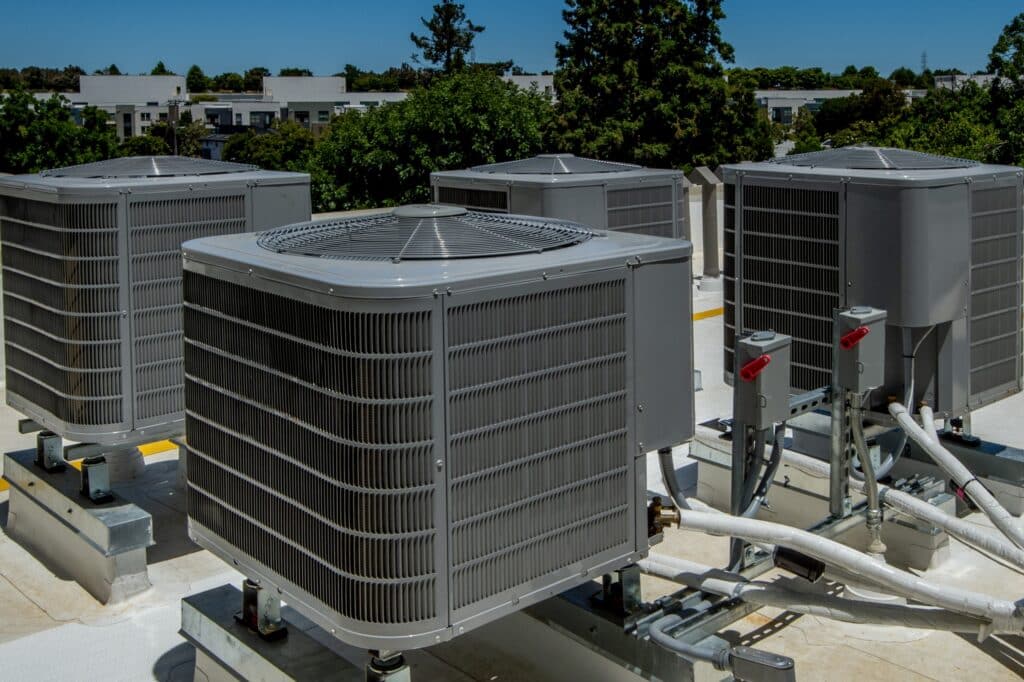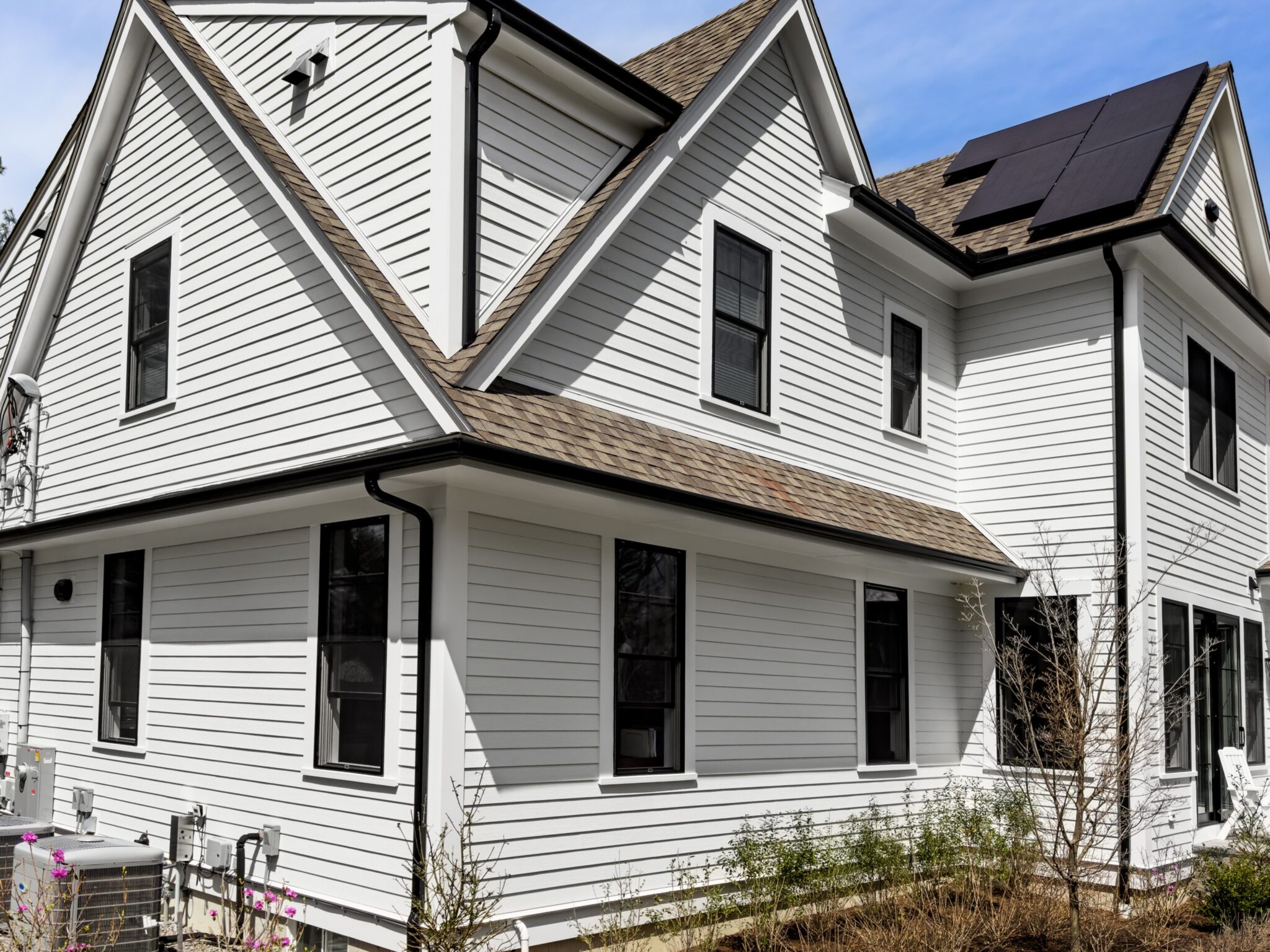
The Role of HVAC in Environmental Sustainability
The role of HVAC in environmental sustainability has become a pivotal topic, especially in areas like Carrollton, Texas, where varying climates demand innovative solutions. By optimizing energy consumption and reducing waste, modern HVAC systems are at the forefront of eco-friendly living. This shift not only benefits our planet but also enhances the comfort and health of indoor environments.
In cities like The Colony, TX, where temperatures can soar, the efficiency of HVAC systems plays a crucial role in conserving energy. Advances in technology have enabled these systems to provide optimal cooling and heating while minimizing their environmental footprint. As a result, HVAC in environmental sustainability is not just a concept but a practical reality that impacts daily living. It’s a testament to how far the industry has come in integrating eco-conscious practices.
Similarly, in Farmers Branch, TX, residents are witnessing the benefits of sustainable HVAC solutions firsthand. These systems are designed to use less energy, emit fewer greenhouse gases, and support a healthier indoor air quality. The focus on HVAC in environmental sustainability is making significant strides in how we think about and utilize heating and cooling services. It’s an exciting time for both consumers and the industry as we move towards a more sustainable future.
The journey towards integrating HVAC in environmental sustainability is ongoing, with continuous improvements and innovations. From Carrollton to beyond, the emphasis on energy-efficient and environmentally friendly HVAC systems is reshaping expectations and experiences. This evolution not only aligns with global sustainability goals but also offers a blueprint for other industries to follow. As we delve deeper into the role of HVAC in environmental sustainability, it’s clear that the path forward is both green and promising.
The Importance of HVAC in Environmental Sustainability
Understanding the importance of HVAC in environmental sustainability is crucial, especially in areas experiencing extreme temperatures. Modern systems are designed to be more energy-efficient, significantly reducing the amount of electricity used for heating and cooling. This efficiency not only conserves energy but also contributes to a substantial decrease in greenhouse gas emissions. As a result, communities in cities like The Colony, TX, benefit from a reduced carbon footprint, aligning with broader environmental goals.
In addition to energy conservation, sustainable HVAC systems play a pivotal role in improving indoor air quality. They are equipped with advanced filtration technologies that remove pollutants and allergens from the air. This ensures that residents in places like Farmers Branch, TX, enjoy a healthier living environment. Cleaner air reduces health risks associated with poor indoor air quality, making sustainable HVAC solutions a key player in public health.
Furthermore, the adoption of eco-friendly HVAC systems supports the longevity of our planet’s resources. By using less energy, these systems lessen the demand on power plants and decrease the need for fossil fuel consumption. This shift towards more sustainable energy sources is essential for protecting natural ecosystems and reducing the impact of climate change. It shows how HVAC in environmental sustainability is not just about energy efficiency but also about resource conservation.
Lastly, the push for HVAC in environmental sustainability encourages innovation within the industry. Companies are motivated to develop and implement technologies that offer greater efficiency and environmental benefits. This drive for innovation not only leads to better products but also inspires other sectors to consider how they can contribute to a more sustainable future. It’s clear that the role of HVAC in environmental sustainability extends beyond immediate environmental benefits, fostering a culture of continuous improvement and eco-consciousness.

How Modern HVAC Systems Reduce Energy Consumption
Modern HVAC systems significantly reduce energy consumption, a key factor in promoting environmental sustainability. They are smartly designed to adjust cooling and heating levels automatically, responding to the indoor and outdoor temperature changes efficiently. This adaptability ensures that systems use only the necessary amount of energy, thereby conserving resources. As a result, households and businesses in The Colony, TX, experience not just comfort but also contribute to a healthier planet.
Innovations in HVAC technology have also led to the development of units that operate more quietly and with greater energy efficiency. These systems are equipped with components that require less power to deliver effective temperature control. By optimizing performance, they reduce the strain on the electrical grid, a crucial step towards sustainability. Residents in Farmers Branch, TX, benefit from these advancements, enjoying a serene indoor environment while supporting global environmental goals.
The integration of renewable energy sources with HVAC systems is another stride towards sustainability. Some modern units can connect with solar panels, harnessing the sun’s power to heat and cool spaces. This not only lessens the dependence on fossil fuels but also decreases greenhouse gas emissions. Such practices exemplify how HVAC in environmental sustainability is evolving, offering greener alternatives for our energy needs.
Lastly, the push towards more sustainable HVAC solutions has a ripple effect, encouraging homeowners and businesses to adopt eco-friendly practices in other areas of their lives. When people see the tangible benefits of using less energy, they are more likely to make other environmentally conscious choices. This collective shift towards sustainability can have a profound impact, demonstrating the significant role HVAC in environmental sustainability plays in our journey towards a greener future.

Innovations in HVAC Technology for Greener Living
Innovations in HVAC technology are paving the way for greener living, emphasizing the importance of HVAC in environmental sustainability. These advancements include the development of systems that are more responsive to environmental changes, ensuring efficient use of energy. For instance, in The Colony, TX, residents now enjoy advanced HVAC systems that adapt more accurately to temperature fluctuations, significantly reducing unnecessary energy consumption. This not only conserves energy but also supports a sustainable lifestyle.
Moreover, the introduction of eco-friendly refrigerants marks a significant step forward. These substances, used in HVAC systems, have a lower impact on the ozone layer and contribute less to global warming. Farmers Branch, TX, homeowners are benefiting from these changes, as their HVAC systems become part of a solution to environmental challenges. It’s a clear demonstration of how the industry’s commitment to sustainability is leading to healthier living environments.
Additionally, HVAC systems are becoming smarter, integrating seamlessly with home automation to offer unprecedented control over energy use. This allows homeowners to adjust settings for maximum efficiency, even when they’re away from home. Such innovations are crucial in minimizing energy waste and promoting a culture of responsibility towards our planet’s resources. It’s an approach that resonates well with the eco-conscious residents of Carrollton, Texas, and beyond, showing that technology and sustainability can go hand in hand.
Finally, the focus on sustainability is encouraging the HVAC industry to explore alternative energy sources, such as geothermal heating and cooling. These systems leverage natural temperatures from the earth, offering a highly efficient and sustainable option for regulating indoor climates. By adopting such innovative solutions, the HVAC sector is making a decisive contribution to environmental sustainability, underscoring the critical role it plays in fostering a greener future. Through these efforts, the industry not only meets current needs but also sets a positive example for other sectors to follow.
The Impact of Regular Maintenance on HVAC Efficiency
Regular maintenance of HVAC systems is crucial for sustaining their efficiency and reducing environmental impact. When professionals service these systems, they ensure optimal performance, which directly conserves energy. This practice aligns with the goals of HVAC in environmental sustainability, emphasizing the importance of proactive care. In The Colony, TX, residents recognize that such maintenance not only extends the lifespan of their units but also supports a healthier planet.
By keeping HVAC systems in top condition, we significantly lower the risk of unnecessary energy use. In Farmers Branch, TX, for instance, routine check-ups help identify potential issues before they escalate, preventing the system from overworking. This approach minimizes the carbon footprint associated with heating and cooling, showcasing how regular maintenance is a key component of environmental sustainability. It’s a simple yet effective strategy to ensure systems do not consume more power than needed.
Moreover, clean and well-maintained HVAC units operate more efficiently, contributing to better indoor air quality. Removing dirt and debris from components allows the system to circulate air more effectively, reducing the need for constant adjustment. This efficiency directly supports HVAC in environmental sustainability, as it lessens the demand on our energy resources. Residents enjoy a comfortable indoor climate while making a positive impact on the environment.
Finally, the practice of regular HVAC maintenance encourages a culture of responsibility and awareness among homeowners and businesses. Understanding the connection between well-kept systems and environmental sustainability motivates people to adopt other eco-friendly practices. It’s a cycle of positive action that starts with something as simple as scheduling regular service visits. Through these efforts, the community as a whole moves closer to achieving broader sustainability goals, making each maintenance check a step towards a greener future.
HVAC in Environmental Sustainability: Choosing the Right System
Choosing the right HVAC system is a critical step in promoting environmental sustainability. In The Colony, TX, homeowners are increasingly opting for systems with high energy efficiency ratings. These units use less power to heat and cool homes, directly reducing greenhouse gas emissions. This choice not only supports the planet but also ensures indoor comfort year-round.
In Farmers Branch, TX, residents prioritize HVAC systems that feature advanced filtration technologies. Such systems improve indoor air quality by removing pollutants and allergens effectively. This focus on health and sustainability reflects a growing awareness of the impact HVAC systems can have on the environment. It’s a practical approach to living more sustainably, benefiting both people and the planet.
Moreover, selecting HVAC systems compatible with renewable energy sources is becoming popular. This allows homeowners to further decrease their carbon footprint by leveraging solar power for their heating and cooling needs. It’s a forward-thinking strategy that aligns with the goals of HVAC in environmental sustainability. By making such choices, individuals contribute to a larger movement towards cleaner energy use.
Finally, the decision to invest in an environmentally friendly HVAC system encourages others to consider their environmental impact. This collective action can lead to significant advancements in reducing energy consumption across communities. It’s a powerful example of how individual choices can drive broader change, moving us closer to a sustainable future.
The Role of Smart Thermostats in Energy Conservation
Smart thermostats are revolutionizing the way we conserve energy in our homes, playing a crucial role in HVAC in environmental sustainability. By learning and adapting to our habits, these devices ensure that heating and cooling systems operate only when needed. This not only reduces energy consumption but also supports a healthier environment. In The Colony, TX, residents are embracing this technology, appreciating the balance it brings between comfort and eco-friendliness.
The integration of smart thermostats with HVAC systems allows for precise control over indoor climates. Users can adjust settings remotely, ensuring that energy is not wasted on heating or cooling empty spaces. This level of efficiency is essential for promoting environmental sustainability. Farmers Branch, TX, homeowners find this feature particularly beneficial, as it aligns with their commitment to reducing their carbon footprint.
Furthermore, smart thermostats provide valuable insights into energy usage patterns. By analyzing this data, homeowners can make informed decisions about their HVAC use, identifying opportunities to save energy. This proactive approach to conservation is a key factor in achieving HVAC in environmental sustainability. It empowers individuals to take charge of their environmental impact, fostering a culture of responsibility.
Lastly, the widespread adoption of smart thermostats signals a shift towards more sustainable living practices. As more people recognize the benefits of energy conservation, the collective impact on the environment grows. This technology not only enhances the efficiency of HVAC systems but also contributes to a larger movement towards reducing energy consumption. It’s a testament to how innovative solutions can support our journey towards a more sustainable future.
Rebates and Incentives for Eco-Friendly HVAC Solutions
Rebates and incentives for eco-friendly HVAC solutions are becoming increasingly popular, encouraging homeowners to make greener choices. In The Colony, TX, residents can access various programs that reward the installation of energy-efficient systems. These initiatives not only promote HVAC in environmental sustainability but also inspire communities to contribute to a healthier environment. By taking advantage of these opportunities, individuals play a vital role in the global movement towards energy conservation.
Farmers Branch, TX, is seeing a surge in interest in sustainable living, with many turning to eco-friendly HVAC solutions. Rebates and incentives serve as a catalyst, making it easier for homeowners to upgrade to more efficient systems. This shift not only improves indoor air quality but also aligns with broader environmental goals. It’s a win-win situation, where residents enjoy better air and lower energy usage, while also supporting the planet.
Moreover, these incentives encourage the adoption of technologies that are less harmful to the environment. By choosing systems that qualify for rebates, homeowners are directly contributing to the reduction of greenhouse gas emissions. This initiative is a key component of HVAC in environmental sustainability, showcasing how individual actions can have a significant impact. It’s a step towards a future where eco-friendly living is the norm, not the exception.
Lastly, the collective effort of communities embracing these incentives is making a noticeable difference. As more people participate, the benefits of HVAC in environmental sustainability become increasingly evident. This movement not only fosters a culture of responsibility but also demonstrates the power of collective action. Together, we’re moving towards a more sustainable future, one eco-friendly HVAC solution at a time.
The Future of HVAC: Trends Towards Sustainability
As we look towards the future, the focus on HVAC in environmental sustainability continues to grow stronger. Innovations are constantly emerging, aiming to further reduce the environmental impact of heating and cooling systems. In The Colony, TX, residents are already seeing the benefits of these advancements, with systems that are more efficient and environmentally friendly. This trend is not only about meeting current needs but also about ensuring a healthier planet for future generations.
In Farmers Branch, TX, the push for sustainable HVAC solutions is gaining momentum. Homeowners and businesses alike are recognizing the importance of adopting practices that support the environment. Whether it’s through the installation of energy-efficient units or the integration of HVAC systems with renewable energy sources, the commitment to sustainability is clear. This shift is a crucial step towards minimizing our ecological footprint and promoting a cleaner, more sustainable world.
The industry’s drive towards sustainability is also encouraging the development of smarter, more adaptable HVAC technologies. These systems are designed to provide optimal comfort while using less energy, demonstrating how innovation can align with eco-friendly goals. As these technologies become more widespread, they pave the way for a future where HVAC in environmental sustainability is the norm. It’s an exciting time for the industry and for those who value the health of our planet.
Ultimately, the journey towards a more sustainable future is a collective effort. By embracing the latest HVAC technologies and practices, communities can make a significant impact on environmental sustainability. The role of HVAC in this movement is undeniable, offering practical solutions for reducing energy consumption and greenhouse gas emissions. As we move forward, the focus on sustainability within the HVAC industry promises to bring about positive changes, benefiting both people and the environment.
Frequently Asked Questions
What is HVAC?
HVAC stands for heating, ventilation, and air conditioning. It controls the temperature and air quality in buildings. Modern systems focus on energy efficiency, playing a key role in environmental sustainability. They use less power and reduce greenhouse gas emissions, making them crucial for a greener future.
How does HVAC impact the environment?
HVAC systems significantly influence environmental health by managing energy use in buildings. Efficient models lower the demand for electricity, reducing fossil fuel consumption. This reduction in energy use decreases air pollution, helping to combat climate change. Ultimately, HVAC in environmental sustainability supports a healthier planet by minimizing carbon footprints.
What are green HVAC technologies?
Green HVAC technologies are innovative solutions designed to enhance environmental sustainability. These systems use renewable energy sources, like solar power, to operate efficiently. They also feature smart thermostats that optimize energy use, reducing waste. By improving air quality and lowering energy consumption, green HVAC technologies contribute significantly to a healthier planet.
How is HVAC in Environmental Sustainability achieved?
Achieving HVAC in environmental sustainability involves adopting energy-efficient systems. These systems use advanced technology to minimize energy consumption and reduce greenhouse gas emissions. Manufacturers design them to be more effective, using less power while maintaining comfort. By integrating smart thermostats and renewable energy sources, these HVAC systems play a vital role in promoting a healthier environment.
Can HVAC systems be energy efficient?
Yes, modern HVAC systems can be highly energy efficient. They are designed with advanced features that reduce electricity use. This efficiency not only conserves energy but also supports environmental sustainability. By choosing energy-efficient HVAC options, homeowners and businesses can significantly lower their energy consumption and contribute to a healthier planet.







